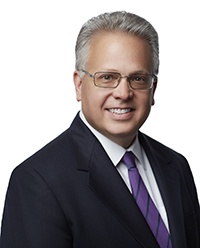A GUIDE TO PROTECTING NONPROFIT BOARD MEMBERS – GLENN DENTON
 |
Glenn D. Denton, Partner Attorney at Law Denton Law Firm, PLLC 555 Jefferson Street Suite 301 Paducah, KY 42001 Phone: (270) 450-8253 |
Nonprofit organizations provide a way for people to work together for the common good. A successful nonprofit cannot function without a volunteer Board of Directors dedicated to the cause. Despite all good intentions, some volunteers are unaware of the personal liability risk associated with this position. So, what protections are available?
Knowledge is power:
It is important for a nonprofit to educate its board members on their legal, fiduciary, and decision-making duties. The first step to protecting a volunteer from liability is to ensure no breach occurs. Proper and thorough training is the easiest way to protect your organization from claims. When a new person is asked to serve as a board member, a brief introduction to the organization’s operations is recommended. The organization may allow a disinterested third party to ensure the following:
- The organization is working within its stated mission, including but not limited to using funds for the stated mission and making spending decisions transparent.
- The organization does not accept any donations that are conditional.
- Board members avoid conflicts of interest and understand their duty to disclose all potential conflicts.
- Board members with personal agendas counter to the stated mission are not permitted to serve.
- Ensure the non-profit follows all relevant tax requirements, antitrust laws, civil rights laws, and manages funds appropriately.
- Board members are trained on their Duty of Care, Duty of Loyalty, and Duty of Obedience. In short, a board member should understate that all actions they take should be in furtherance of the organization’s mission and should be taken in the same manner as if they were conducting an action for themselves.
Statues
Luckily, there are federal and state statutes aimed to protect volunteers acting in good faith. The Volunteer Protection Act of 1997 (VPA) serves to protect directors, officers, trustees, and any other persons who contribute their services to the organization as long as the individual is working within the scope of their duties and does not act negligently, recklessly, or criminally. If your state has adopted a statute pertaining to volunteer protection, it may provide this much protection if not more.
Indemnification
Nonprofit organizations may choose to indemnify or protect their volunteers through provisions in their bylaws. Generally, organizations will cover legal all expenses in the event of a lawsuit so long as the volunteer was acting in good faith. Should the volunteer act in a criminal, negligent, reckless, or “bad faith” manner, the provision is null and void and the volunteer will be solely responsible for all accrued legal bills. When drafting your organization’s bylaws, it is important to confer with an attorney to ensure that these provisions follow state statutes.
Insurance
Your organization may also purchase Directors and Officer (D & O) liability insurance to protect against certain kinds of lawsuits and litigation. These policies generally shield current, future, and past directors and officers from personal losses should they be sued as a result of their service to an organization. D & O insurance can also cover legal fees and other costs the organization may incur as a result of the suit. Policies can insure against a wide variety of circumstances subject to litigation but generally do not cover directors or officers in the event of fraud, criminal activity, or illegal profits.
The Bottom Line
Navigating the waters of risk management might seem like a daunting task but it is manageable. Don’t let the fear of liability stifle your organizations growth.
If you have questions, please feel free to contact W. David Denton at Denton Law Firm located in Paducah, KY. (270) 450-8253.
Researched and Prepared by Morgan Wiggins
